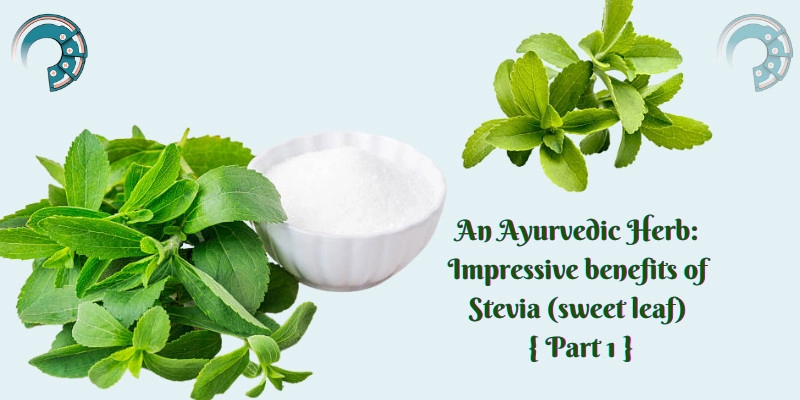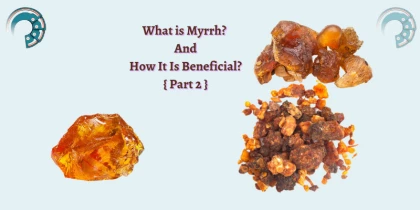
An Ayurvedic Herb : Impressive benefits of Stevia (sweet leaf) { Part 1 }
Stevia :
Stevia is a small perennial shrub that has been used for centuries as a sweetener. It is also used for various medicinal purposes. Stevia is an ideal sweetener for diabetic patients as it increases insulin production due to its antioxidant property. It is also useful for weight management as it is low in calories. Stevia is also beneficial for the liver as it has hepatoprotective and antioxidant properties.
Stevia is good for the skin as it has an anti-wrinkle property that helps tighten the skin and provide shine to it. Its antibacterial and anti-inflammatory properties help manage eczema and promote wound healing. Stevia might cause allergic reactions or itchy rashes in some hypersensitive people, so, in such cases, it is advisable to consult a physician before using stevia.
Types of Stevia :

- Green Leaf Stevia: This is the least processed form of stevia. It is 30-40 times sweeter than sugar and is also slightly bitter to taste.
- Stevia Extracts: Its extracts are 200 times sweeter than sugar and comparatively less bitter than green leaf stevia.
- Altered Stevia: This is the highly processed form of stevia which contains GMO ingredients. It is 200-400 times sweeter than sugar and is often termed as the worst form of stevia.
Sweetleaf in Ayurveda :
According to Ayurveda, sweetleaf is one of the best ayurvedic herbs for managing high blood sugar levels. The sweetness of these leaves is due to the presence of sweet steviol glycoside which is composed of glucose, sophorose, and steviol. These leaves are a hundred times sweeter than sugar and have very few calories than sugar. It also has antibacterial, anti-inflammatory, anticancer, antioxidant, hypoglycaemic, and hypotensive properties.
Nutritional Value of Stevia :
Stevia is valued mostly for its sweet leaves and its ability to replace sugar in a diet, but stevia also contains a wealth of antioxidant compounds, such as flavonoids, triterpenes, tannins, caffeic acid, kaempferol, and quercetin.
The stevia plant also contains fiber, protein, iron, potassium, magnesium, sodium, vitamin A, and vitamin C. However, in the sweetener form, these additional elements are nearly negligible. The smaller organic compounds play a real role in the health benefits of stevia.
How to Use and Store :
You can use stevia leaves, leaf powder, or liquid form directly as a sugar substitute in various foods :
- Beverages – coffee, and tea
- Dairy products – yogurt, and ice-cream
- Packed foods – pickles, sauces, soft drinks, and candies
- Baked products – bread, cakes, and desserts
You could also use it in cooking various dishes at home. However, it is important to check the amount before adding it as a substitute for sugar because it is many times sweeter than sugar.
Benefits of sweet leaf :
As an alternative to sucrose, or table sugar, using stevia as a sweetener carries the potential for considerable health benefits. Stevia is considered a no-calorie. Stevia does not strictly contain zero calories, but it is significantly less calorific than sucrose and low enough to be classified as such.
The sweet-tasting components in stevia sweeteners occur naturally. This characteristic may benefit people who prefer naturally-sourced foods and beverages. The low-calorie count qualifies Stevia to be a healthful alternative for diabetes control or weight loss. Here are some of the possible health benefits of stevia :
Sweetleaf for high blood sugar levels:
Sweetleaf has the ability to control Type II diabetes. Regular consumption of this plant can bring down elevated blood sugar levels caused by insulin resistance. It improves the function of hormones that helps in insulin production and lowers high blood sugar level.
Improves Bone Health :
Although this hasn’t been extensively tested in humans, certain studies have shown that chickens that have been fed a stevia diet lay significantly thicker shells that contain a much higher content of calcium than average eggs. This has been extrapolated to humans, meaning that it could potentially help build stronger bones and decrease the chances of osteoporosis, thus improving bone health.














